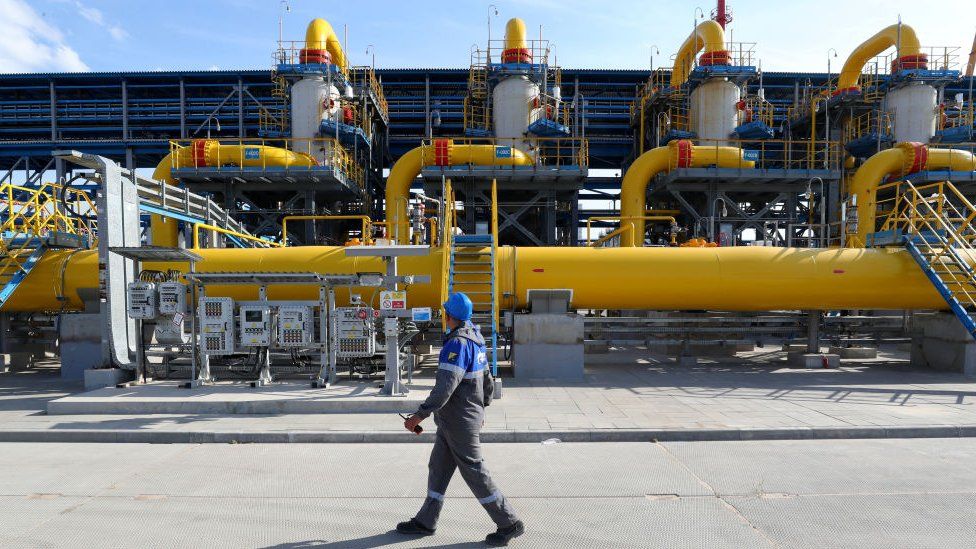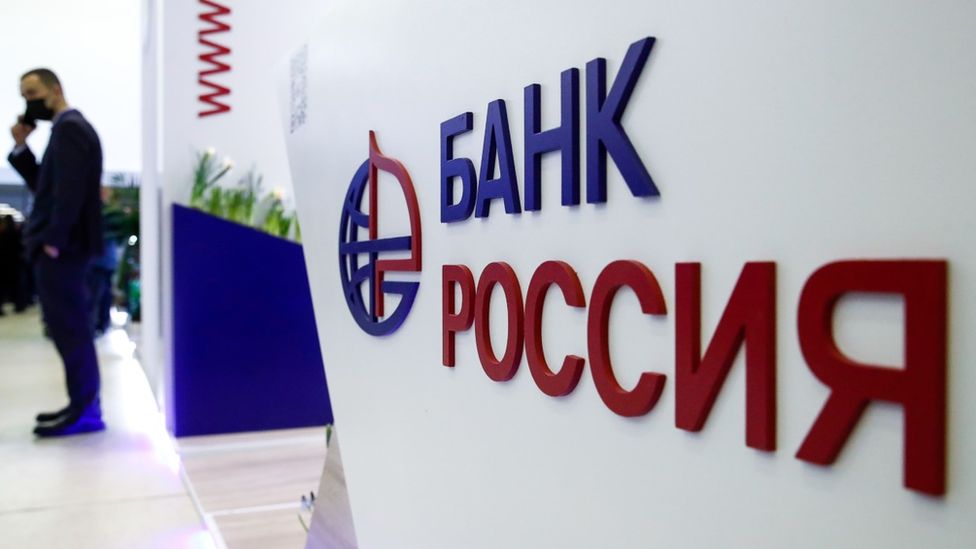BBC News 25 February 2022
Western nations have imposed severe sanctions on Russia following its invasion of Ukraine.
What is a sanction?
A sanction is a penalty imposed by one country on another, often in order to stop it acting aggressively or breaking international law.
Sanctions are often designed to hurt a country's economy, or the finances of individual citizens such as leading politicians. They can include travel bans and arms embargoes.
They are among the toughest measures nations can use, short of going to war.
What sanctions are Western nations imposing?
Declaring that Russia "chose this war", US President Joe Biden announced:
- four major Russian banks will have their assets frozen and be cut off from US dollar transactions
- sanctions on wealthy Russian individuals with close links to the Kremlin
- the US and allies will cut off more than half of Russia's high-tech imports to stop it developing its military capabilities
EU nations sanctions included:
- targeting 70% of the Russian banking market and key state owned firms, including defence firms
- targeting the energy sector with an export ban on materials Russia uses for oil refineries
- banning the sale of aircraft and equipment to Russian airlines
- limiting Russia's access to high-tech, such as semiconductors and software
The UK announced:
- all major Russian banks to have their assets frozen and be excluded from the UK financial system
- laws to stop major Russian companies and the state raising finance or borrowing money on UK markets
- asset freezes on new individuals or entities
- Russia's Aeroflot airline will be banned from the UK
- export licences suspended for dual-use items which can be used for military purposes
- a stop to exports of high-tech items and oil refinery equipment
- a limit on deposits Russians can make to UK bank accounts
German chancellor Olaf Scholz has also put on hold permission for the Nord Stream 2 gas pipeline from Russia to Germany to open.
The UK and the US are also extending financial sanctions on Belarus for its role in the assault on Ukraine.
How will these sanctions affect Russia?
Banning exports of high-tech goods to Russia - such as semiconductor microchips - could affect Russia's defence and aerospace sectors and industries such as car production.
The measures taken against Russian financial institutions are intended to cause a big fall in the country's currency, the rouble, and a financial crisis.
The Russian government might have to bail out the banking system, at great expense. However, it has built up reserves of over $630bn (£464bn) to deal with economic shocks.
The UK government has also threatened further action against Russian money in London financial institutions and banks. It has promised to push through a long-delayed Economic Crimes Bill which would toughen measures, requiring people to say where their cash has come from.
What other sanctions could Russia face?
Western nations are lining up harsher sanctions. Options could include:
Excluding Russia from Swift
Swift is a financial messaging service which allows quick international transactions and is used by 11,000 financial institutions in 200 countries.
Ukraine has called for Russia to be excluded from it immediately.
A ban would delay the payments Russia gets for exports of oil and gas.
When Swift banned Iran in 2012 - under pressure from the US - that country lost almost half of its oil export revenues and 30% of foreign trade.
However, Russia could get paid through other systems - for example, China's Cross-Border Interbank Payment System.
Blocking Russian gas and oil exports
Oil and gas makes up a fifth of Russia's economy and half of its earnings from exports.
As such, refusing to buy its oil and gas would be a very tough sanction.
However, it would also be damaging to Western nations that rely on it.
Russia supplies 26% of the EU's crude oil and 38% of its gas. Even a brief cut in gas supply would raise energy prices.
How has Russia reacted to the sanctions?
Russia's foreign ministry has threatened to introduce sanctions of its own against the West. This may include reducing or shutting off gas supplies to Europe.
British airlines have now been banned from Russian airspace or landing at Russian airports.
Hitting the Russian banking sector is likely to damage firms which do business in Russia, or have assets in its banks, and the export ban on high-tech goods will hit many Western manufacturers.


